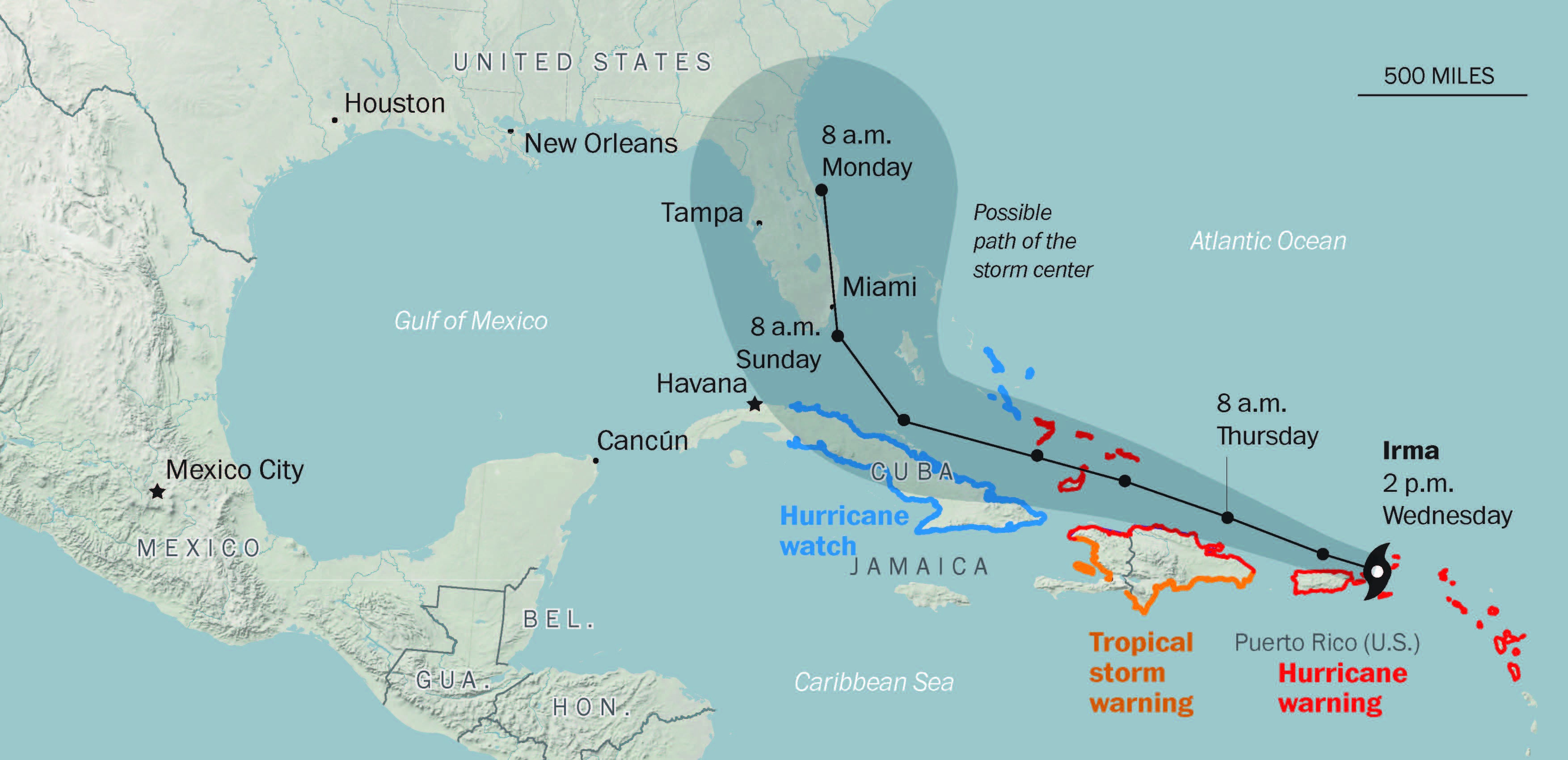Rowan emergency chief: Prepare for Irma, just in case
Published 6:09 pm Wednesday, September 6, 2017

- The possible path of Hurricane Irma's storm center shows it striking Florida Sunday and Monday. Washington Post graphic
Staff report
SALISBURY — Though Hurricane Irma is still far away, it’s not too early for Rowan County residents to prepare for possible hurricane-related emergencies.
So says Frank Thomason, chief of emergency services for the county.
Just minutes after Gov. Roy Cooper declared a state of emergency for North Carolina on Wednesday, Thomason sent out a message encouraging people and businesses to update their emergency plans and kits and stay tuned to local media.
“We know past powerful storms like Hurricane Hugo can have major effects on our county and communities,” Thomason said. “These hurricanes’ storm tracks can shift quickly and is why we encourage readiness now.”
In 1989, Hugo slammed into Charleston, South Carolina, blew westward to Charlotte and soon brought heavy rains and high winds into Rowan County. Property damage was widespread in Rowan, and many homes were without power for weeks.
To ensure your family or business is storm-ready, Thomason passes along these tips:
• Get your family or personal emergency kit ready with enough bottled water and nonperishable food to sustain each family member for three to seven days. Include a weather radio, flashlight, extra batteries, toiletries, change of clothes, blankets or sleeping bag, rain gear and appropriate footwear. Also include copies of important documents, such as birth certificates and insurance policies.
• Review your personal or business emergency plan to better understand and share with family members or business co-workers.
• Gather supplies for your pet and put them in an easily accessible container.
• Prepare your home or business. Clean out gutters and clear property of debris that could damage buildings in strong winds. Shop now for supplies needed to secure your property.
• Find out your flood risk. Determine if you are in a flood plain or flood-prone area.
• Learn evacuation routes for your area. Listen to local officials and evacuate if instructed.
• Keep up with weather advisories. Stay tuned to local news for the latest advisories from the National Weather Service and National Hurricane Center, as well as state and local emergency management officials.
For more preparedness tips and information, visit www.ReadyROWAN.org



